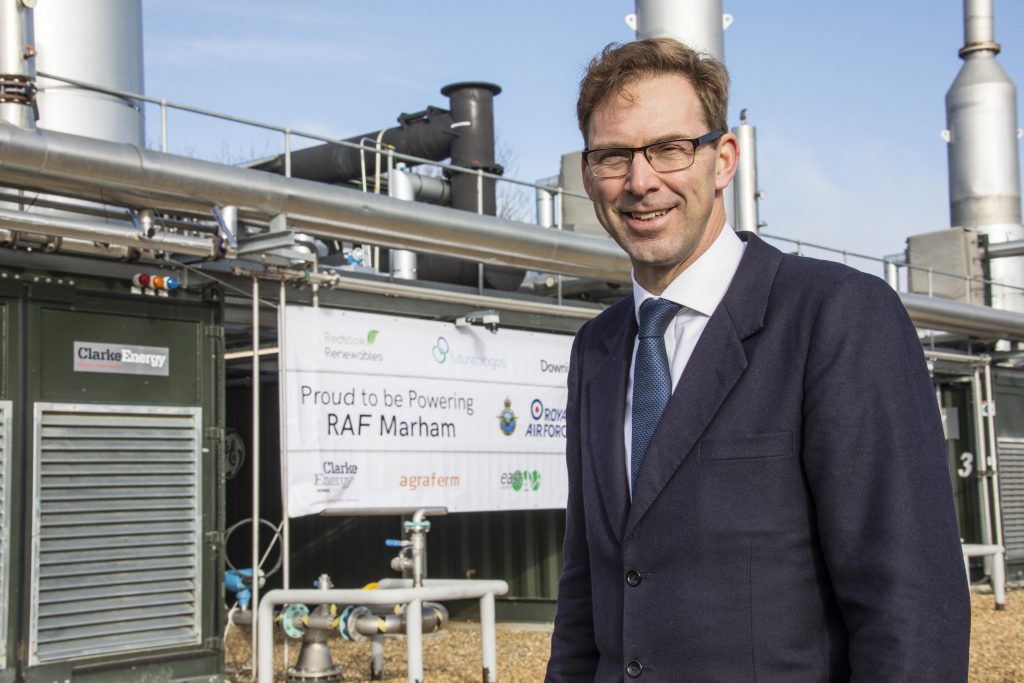
What can you make from crops? Food, obviously, but what about electricity? Enough power to run a busy operational RAF station? That’s exactly what’s happened in Norfolk.
RAF Marham, the home of the UK’s F-35 multi role combat jets, is the first UK military airbase to powered by green electricity after a biogas plant was opened by Defence Minister Tobias Ellwood last month.
I was the Project Manager and driving force behind getting the site connected to the plant and it’s been a privilege to be involved. Future Biogas built and operate the plant, which is fuelled by fermented locally grown crops in a process called Anaerobic Digestion. The fermentation produces gas which is collected and powers three generators to produce electricity. It provides 95% of RAF Marham’s energy needs – more at times of low demand such as at night and during the summer - and saves the MOD nearly £300,000 every year. It generates 4.5 MW of electricity every hour. That’s enough to power 350,000 LED bulbs and a reduction in the MOD’s carbon emissions of 14,000 tonnes of CO2 every year.
We started developing the plans in February 2015 and DIO has been hard at work with colleagues in Crown Commercial Service (CCS), Future Biogas and energy company EDF to develop an electricity supply that is green and sustainable as well as providing financial savings. We undertook a feasibility assessment to determine what benefits could be derived from this supply of clean energy. As well as saving money and reducing carbon emissions, it was determined that the new plant would increase power resiliency at RAF Marham by providing multiple sources of electricity.

The project was sourced through frameworks put in place by CCS, which helps the entire public sector to save time and money when buying common goods and services. It really is a win-win as the energy is sustainable, saves the taxpayer money, provides energy resilience for RAF Marham and supports the local economy. On top of that the waste organic matter is spread back on the fields to fertilise the next crop.
Future opportunities
The media coverage of this project is also helping to raise awareness to both the private and public sectors of the benefits of collaboration when it comes to innovative forward-thinking procurement methods like the Power Purchase Agreement used in the project. Already I have been asked for guidance from several interested parties wanting to follow in our footsteps which makes this project so much more important.
With potential similar opportunities across the UK supporting the wider public services such as hospitals, prisons and schools, the overall savings to the tax payer could easily be significant. Additionally, this would help to reduce the strain on the National Grid, provide local power resiliency, reduce our carbon emissions and mitigate the effects of climate change. Win-Win!
From small acorn to giant forest, I throw down the gauntlet to you all to play your part in reducing your carbon footprint at home, in transit and at work. Together we can make an incredible difference.
1 comment
Comment by Oliver posted on
Nice project. Pedant's corner: it generates 4.5 MW of electricity. Full stop. Not every hour.